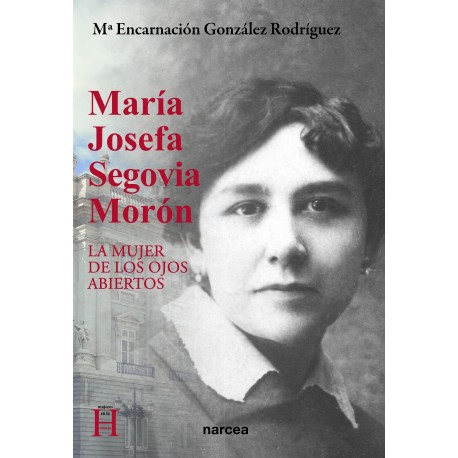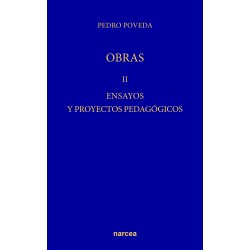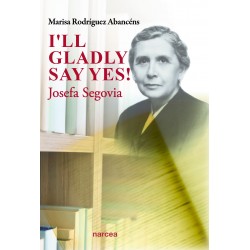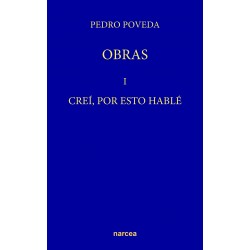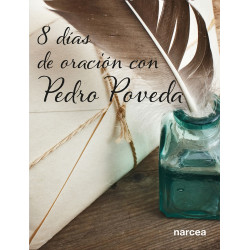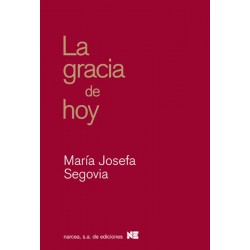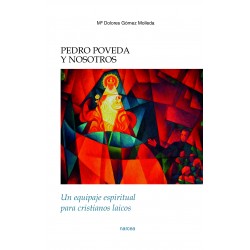Herramientas de accesibilidad
María Josefa Segovia Morón
La mujer de los ojos abiertos
María Josefa Segovia (1891-1957) es una de esas mujeres que, inmersas en su tiempo y proyectadas hacia el nuestro, llegaron a hacer historia. “Los destinos de la mujer culta y su influencia en la sociedad moderna son ahora mismo algo tan grande como impreciso”, escribió don Pedro Poveda en 1931. En su escuela, con creatividad, audacia y discreción María Josefa fue haciendo concreto un modo de ser y de actuar, inédito en su tiempo, algo más común en el nuestro, pero todavía con necesidad de volver los ojos hacia estas personas cuya biografía sigue suscitando admiración y sugiriendo metas aún por alcanzar.
La mujer de los ojos abiertos supo ver y trascender la compleja realidad que le acompañó de por vida. Con una mirada atenta al presente, pero sin dejarse atrapar por él, percibió los límites y las posibilidades de su entorno; superó obstáculos, caminó con firmeza y decisión, y también ayudó a caminar.
Muchas personas cruzaron su mirada con la suya y sintieron su impacto sobre ellas; también nosotros podemos intentarla ver.
- ISBN
- 9788427723313
- Páginas
- 306 + 8 páginas de fotografías
- Edición
- 1ª edición
- Fecha de edición
- 2017
- Alto
- 24,00 cm
- Ancho
- 15,00 cm
PRÓLOGO de Maite Uribe
LA PERSONA Y EL TIEMPO
Referencias de contexto.
PRIMERA ETAPA, 1891-1913
“El milagro de mi fe”
La hija de don Manuel y doña Dolores.
La estudiante de Magisterio en Granada.
La primera mujer giennense en la Escuela Superior de Madrid.
SEGUNDA ETAPA, 1913-1923
“Compartía con él la ejecución del trabajo”
En la Obra Teresiana: “No tardé en entusiasmarme con la idea”.
Inspectora de escuelas: “Me encontraba muy bien entre ellos”.
En la Institución Teresiana: “Y lo hice y fui”.
Aquí y ahora: “Lo más serio y difícil en que podemos ocuparnos”.
TERCERA ETAPA, 1936-1957
“Esta Obra que me dejó en mis manos sin palabras”
En fidelidad al fundador: continuar la Obra.
En respuesta al momento presente.
En perspectiva universal.
En actitud de ofrecer todo, de entregarlo todo.
María Josefa Segovia (1891-1957) is one of those women who made History. A woman immersed in her time, but always looking to the future.
“The fate of the instructed woman and her influence in our modern society is as important as fragile” (Pedro Poveda, 1931).
María Josefa lived with creativity, audacity, and discretion. She set a model, unknown at that time. Nowadays, we understand her way of life a little bit more, but we still need to learn about those people whose biography awakes admiration and inspires new goals.
She was a women who kept her eyes wide-opened to see and transcend the complex reality she lived. Always paying attention to the present, without getting stuck in it. She perceived the limits and possibilities of her surroundings. She overcame obstacles, walked firmly and with determination, and help others to walk.
Many people made eye contact with her, and felt the impact of her look. Today, we can also feel this impact in our lives.
CONTENTS EXTRACT
FOREWORD, by Maite Uribe.
THE PERSON AND THE TIME.
References to the context.
FIRST PERIOD, 1891-1913.
“The miracle of my faith”
Manuel and Dolores’ daughter.
The student of Education in Granada.
The first woman from Jaén at Escuela Superior de Madrid.
SECOND PERIOD, 1913-1936.
“I shared with him the execution of the work”.
In the Teresian Work: “It did not take me too long to get excited with the idea”.
As School inspector: “I felt comfortable among them”.
At the Teresian Association: “And so I did it, and there I went”.
Here and now: “The most serious and difficult task to be involved in”.
THIRD PERIOD, 1936, 1957.
“This Work that he left in my hand with no words”.
Loyalty to the founder: continuing the Work.
In response to the present moment.
Universal perspective.
In offering attitude, ready to devote her live.
María Encarnación González, holds a PhD in Modern and Contemporary History, at Universidad de Barcelona. She holds a degree in Philosophy - specialised in History - and another degree in Canon Law, at Universidad Pontificia “Comillas” de Madrid. She has been the first director of the institution in charge of canonization processes at the Spanish Episcopal Conference. In 2015, Pope Francis awarded her with the medal of the Dame Commander of the Order of St Gregory the Great. She is author of many publications.
María Encarnación González
María Encarnación González, Licenciada en Filosofía y Letras, sección de Historia, en la Universidad de Valladolid y Doctora en Historia Moderna y Contemporánea por la Universidad de Barcelona; es también Licenciada en Derecho Canónico por la Universidad Pontificia “Comillas” de Madrid. Ha sido la primera directora de la Oficina de las Causas de los Santos de la Conferencia Episcopal Española. Postuladora de la Causa del Doctorado de san Juan de Ávila y de la canonización de san Pedro Poveda, entre otros. En 2015, el papa Francisco le otorgó la medalla de Dama Comendadora de la Orden de San Gregorio Magno. Es autora de numerosas publicaciones.

